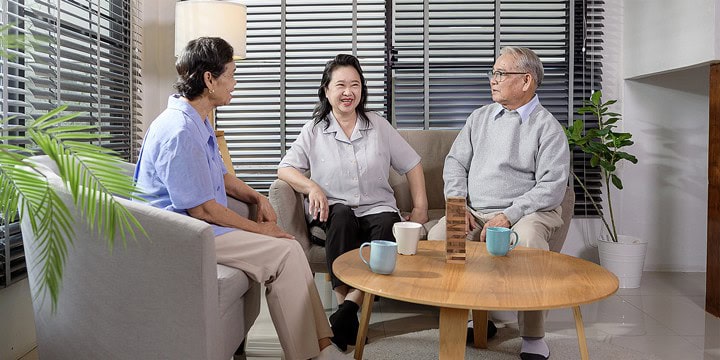 My father has a brilliant mind for Health Policy, he’s been an expert in the field for more than 50 years. Even now, at 84, he is working most of the time, teaching at universities and participating on numerous board and commissions on health policy issues. He has no problem weaving in the complexities of today’s health care challenges with the issues and efforts that have plagued this country for the past 50 years. He’s a sought after expert because of what he knows and remembers. And yet, for all this brilliance, he can not remember the name of the infection that almost killed him 2 years ago this week: Necrotizing Fasciitis.
My father has a brilliant mind for Health Policy, he’s been an expert in the field for more than 50 years. Even now, at 84, he is working most of the time, teaching at universities and participating on numerous board and commissions on health policy issues. He has no problem weaving in the complexities of today’s health care challenges with the issues and efforts that have plagued this country for the past 50 years. He’s a sought after expert because of what he knows and remembers. And yet, for all this brilliance, he can not remember the name of the infection that almost killed him 2 years ago this week: Necrotizing Fasciitis.
He is left with the scars internally and externally of the infection. He knows he came so close to dying, that he was in the Trauma ICU for 8 weeks, on a ventilator and dialysis, then another 2 weeks in the main hospital and then 6 weeks in a long term acute care hospital, dedicated only for those needing the most intensive care, still with tracheotomies and wound vacs and feeding tubes and round the clock care.
Slowly, he got better. As a nurse once described to me: with chronic critical care, you improve by losing “one tube at a time.” Miraculously (they all said to me) he lost the tubes – one by painstaking one were removed. Eventually, he got to the point he could come home with 24/7 home health and home care. And then, even that need lessened to where he needs minimal help today.
The permanent physical damage means he can not join his friends in tennis and golf – so much for that idea of retirement. So, he didn’t retire. The pandemic has been a strange gift to him. The world switching to Zoom meant he could re-join his students and colleagues from the comfort of his home, and the comfort of sweat pants covering his bandages.
My father’s mind is amazingly filled with so many facts and the fabulous ability to distill complex ideas into simpler explanations for others. But, when he’s in medical appointments and talking to friends, he turns to me to tell him, once again, what happened to him. He can’t seem to remember the name: Necrotizing Fasciitis. I’ve written it down a few times, we typed it into his iPhone if he needs it for appointments.
For months, this was so strange to me. How could he not hold on to this one key detail, the name of the infection that wreaked such havoc on his life and our lives. He doesn’t even remember the more sensationalized lay term: flesh eating bacteria.
And then, one day it hit me: his mind is helping him move forward.
Perhaps forgetting is the true act of resilience. I remember years ago in an intro to psychology class in college learning about the amazing coping strategies our brains have to help us move forward after trauma. How for some, making them remember painful details exacerbates PTSD, rather than alleviates.
At some point, I stopped reminding my father of what he – and we – went through. My sisters, mother and I went through our own trauma through this experience. Some memories have faded, some are still just as sharp and painful. We’re working through our own story of resilience.
For my father, perhaps, a bit of ignorance is truly a bit of bliss. And I’m so grateful for what he doesn’t remember about the past and almost dying. For now, he’s too busy living.
This information provided courtesy of All About Seniors, by Heather Altman, DrPh, CCM



 Are you attempting to weigh assisted living versus nursing home care as an option for yourself or a family member? Many Americans just like you are doing exactly that. They’re looking for clear answers about senior living possibilities and the differences between them. Thankfully, you’re in the right spot to find some of those answers.
Are you attempting to weigh assisted living versus nursing home care as an option for yourself or a family member? Many Americans just like you are doing exactly that. They’re looking for clear answers about senior living possibilities and the differences between them. Thankfully, you’re in the right spot to find some of those answers. My father has a brilliant mind for Health Policy, he’s been an expert in the field for more than 50 years. Even now, at 84, he is working most of the time, teaching at universities and participating on numerous board and commissions on health policy issues. He has no problem weaving in the complexities of today’s health care challenges with the issues and efforts that have plagued this country for the past 50 years. He’s a sought after expert because of what he knows and remembers. And yet, for all this brilliance, he can not remember the name of the infection that almost killed him 2 years ago this week: Necrotizing Fasciitis.
My father has a brilliant mind for Health Policy, he’s been an expert in the field for more than 50 years. Even now, at 84, he is working most of the time, teaching at universities and participating on numerous board and commissions on health policy issues. He has no problem weaving in the complexities of today’s health care challenges with the issues and efforts that have plagued this country for the past 50 years. He’s a sought after expert because of what he knows and remembers. And yet, for all this brilliance, he can not remember the name of the infection that almost killed him 2 years ago this week: Necrotizing Fasciitis. 
 Patients with early stage Alzheimer’s disease have a new treatment option. On July 6, 2023, the U.S. Food and Drug Administration (FDA) granted traditional approval to lecanemab (Eisai/Biogen), brand name Leqembi, for patients confirmed to be in early stage Alzheimer’s disease with elevated amyloid beta. The treatment was granted accelerated approval in January 2023, but this is the first Alzheimer’s treatment to receive traditional approval that changes the underlying course of the disease.
Patients with early stage Alzheimer’s disease have a new treatment option. On July 6, 2023, the U.S. Food and Drug Administration (FDA) granted traditional approval to lecanemab (Eisai/Biogen), brand name Leqembi, for patients confirmed to be in early stage Alzheimer’s disease with elevated amyloid beta. The treatment was granted accelerated approval in January 2023, but this is the first Alzheimer’s treatment to receive traditional approval that changes the underlying course of the disease.
 What makes seniors’ nutrition such an important topic? Isn’t food just…food? Well, you might be surprised. Your food choices can have big impacts on your well-being. For instance, healthy eating habits can improve your energy levels, boost your immune system, and make you feel great inside and out. For some older adults, they can even help restore feelings of youthfulness.
What makes seniors’ nutrition such an important topic? Isn’t food just…food? Well, you might be surprised. Your food choices can have big impacts on your well-being. For instance, healthy eating habits can improve your energy levels, boost your immune system, and make you feel great inside and out. For some older adults, they can even help restore feelings of youthfulness.
 It isn’t uncommon for a person to eat significantly less as they get older. Your aging parent may eat less because he/she is less active, which can lead to decreased appetite, or because he/she isn’t able to prepare food. However, even though your aging parent isn’t burning as many calories, she still needs to take in proper nutrition to maintain a healthy body weight and remain strong. How to Help Your Aging Parent Get Proper Nutrition
It isn’t uncommon for a person to eat significantly less as they get older. Your aging parent may eat less because he/she is less active, which can lead to decreased appetite, or because he/she isn’t able to prepare food. However, even though your aging parent isn’t burning as many calories, she still needs to take in proper nutrition to maintain a healthy body weight and remain strong. How to Help Your Aging Parent Get Proper Nutrition